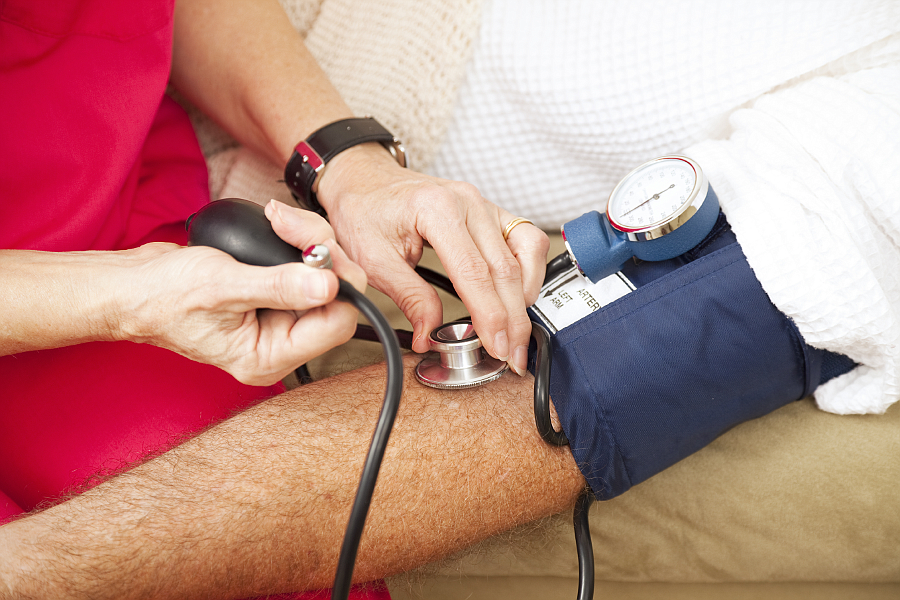-
-
Loading

Loading

Did you know? Hypertension is the world’s most common and modifiable cardiovascular risk factor, according to the American Heart Association. If you have high blood pressure, you can take an active role in helping to lower it.
What Is Hypertension?
Your blood pressure is the measurement of force applied to artery walls as the heart and blood vessels work together to deliver blood to vital organs. Receiving a diagnosis of high blood pressure means that these forces are working too hard to do their job, causing undue stress on your heart.
Average blood pressure numbers can vary. However, according to recent guidelines, a normal systolic number (upper number, measured when heart beats) should be less than 120. A normal diastolic (lower number, measured between heart beats) is less than 80.*
Hypertension that is uncontrolled can put you at higher risk for heart disease and other serious conditions.
What Causes High Blood Pressure?
Risk factors for high blood pressure are considered changeable and unchangeable.
Some of the mostly unchangeable risk factors may include aging, ethnicity, gender, family history, pregnancy and kidney disease.
To help lower your blood pressure, focus on the changeable risk factors. These include obesity, sodium intake, alcohol consumption, sedentary status, smoking, stress, unhealthy diet, diabetes, and high cholesterol.
What Can I Do to Control My Blood Pressure?
Your Physician May Recommend
If you have concerns about hypertension, talk to your physician today about controlling your blood pressure. And remember to have your blood pressure checked routinely.
Dr. S. Jay Matthew is a member of the structural heart team at Manatee Memorial Hospital and cardiologist at Bradenton Cardiology Center. To make an appointment, call 941.748.2277.
*New Hypertension Guidelines from the American College of Cardiology and the American Heart Association, November 2017.
Physicians are not employees or agents of Manatee Memorial Hospital.
